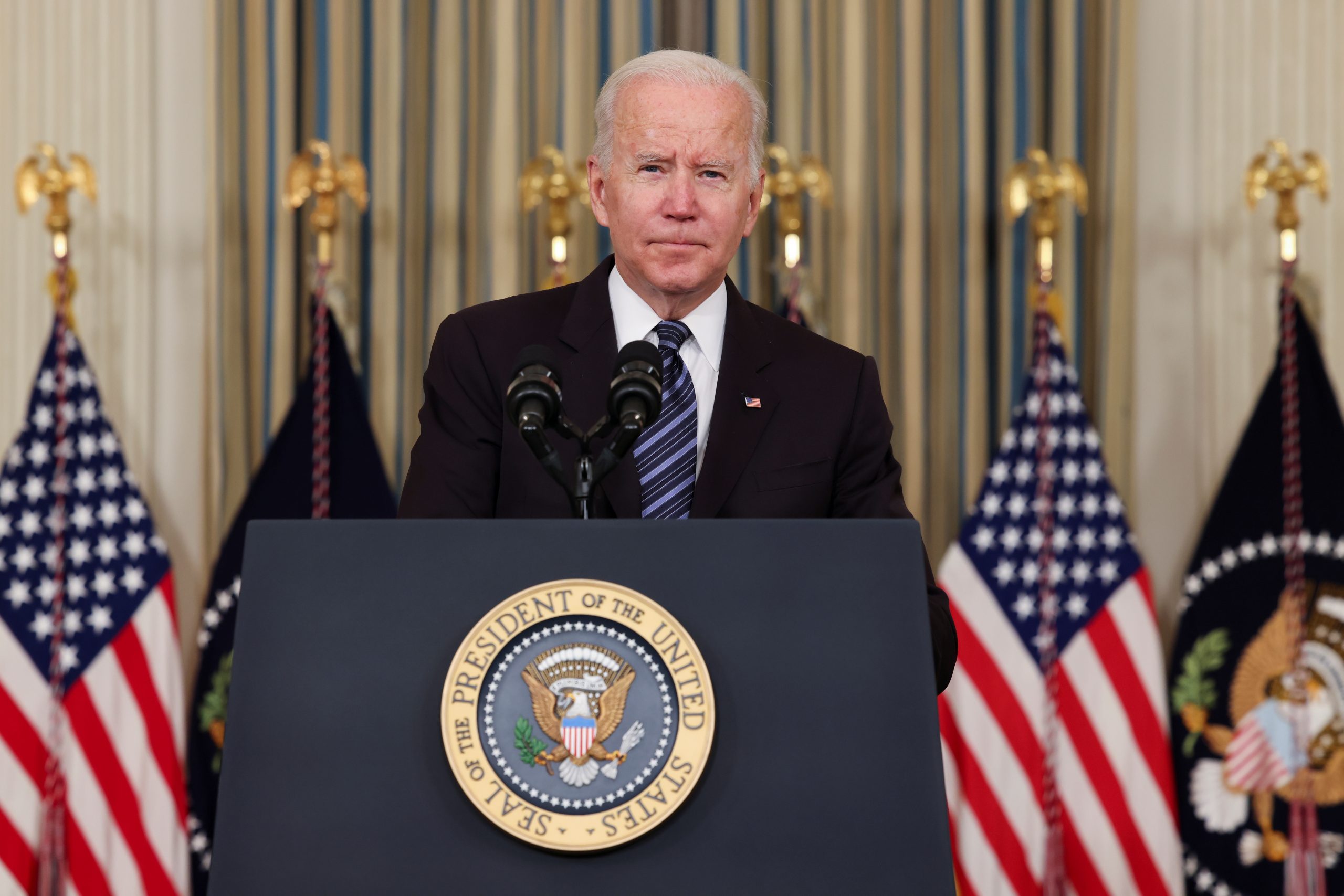After a daylong standoff, Democrats set aside divisions between progressives and centrists to pass a $1 trillion package of highway, broadband and other infrastructure improvement, sending it on to President Joe Biden to sign into law.
The 228-to-206 vote late on Friday is a substantial triumph for Biden’s Democrats, who have bickered for months over the ambitious spending bills that make up the bulk of his domestic agenda.
Biden’s administration will now oversee the biggest upgrade of America’s roads, railways and other transportation infrastructure https://www.reuters.com/world/us/roads-bridges-airports-details-bidens-1-trillion-infrastructure-bill-2021-11-05 in a generation, which he has promised will create jobs and boost U.S. competitiveness.
Democrats still have much work to do on the second pillar of Biden’s domestic program: a sweeping expansion of the social safety net and programs to fight climate change. At a price tag of $1.75 trillion, that package https://www.reuters.com/business/cop/whats-bidens-175-trillion-build-back-better-package-2021-11-05 would be the biggest expansion of the U.S. safety net since the 1960s, but the party has struggled to unite behind it.
Democratic leaders had hoped to pass both bills out of the House on Friday, but postponed action after centrists demanded a nonpartisan accounting of its costs – a process that could take weeks.
After hours of closed-door meetings, a group of centrists promised to vote for the bill by Nov. 20 – as long as the nonpartisan Congressional Budget Office found that its costs lined up with White House estimates.
“Welcome to my world. This is the Democratic Party,” House Speaker Nancy Pelosi told reporters earlier in the day. “We are not a lockstep party.”
The $1.75 trillion bill cleared a procedural hurdle by a vote of 221 to 213 early on Saturday, which will enable Democratic leaders to quickly schedule a final vote when the time comes.
The standoff came just days after Democrats suffered losses in closely watched state elections, raising concerns that they may lose control of Congress next year.
The infrastructure bill passed with the support of 13 Republicans, fulfilling Biden’s promise of passing some bipartisan legislation. The phrase “infrastructure week” had become a Washington punch line during his predecessor Donald Trump’s four years in the White House, when plans to focus on those investments were repeatedly derailed by scandals.
“Generations from now, people will look back and know this is when America won the economic competition for the 21st Century,” Biden said in a statement.
AIM TO MOVE FORWARD
The party is eager to show it can move forward on the president’s agenda and fend off challenges in the 2022 midterm elections in which Republicans will seek to regain control of both chambers of Congress, which they lost to the Democrats under Trump.
Congress also faces looming Dec. 3 deadlines to avert a politically embarrassing government shutdown and an economically catastrophic default on the federal government’s debt.
With razor-thin majorities in Congress and a united Republican opposition, Democrats need unity to pass legislation.
The infrastructure bill, which passed the Senate https://www.reuters.com/article/usa-biden-infrastructure-idTRNIL1N2PH1MA in August with 19 Republican votes, would fund a massive upgrade of America’s roads, bridges, airports, seaports and rail systems, while also expanding broadband internet service.
The “Build Back Better” package includes provisions on child care and preschool, eldercare, healthcare, prescription drug pricing and immigration.
It would bolster the credibility of Biden’s pledge to halve U.S. greenhouse gas emissions from 2005 levels by 2030 during the U.N. climate conference https://www.reuters.com/business/cop taking place in Glasgow, Scotland.
Republicans uniformly oppose that legislation, casting it as a dramatic expansion of government that would hurt businesses.
“This is potentially a very black day for America,” said Republican Representative Glenn Grothman, who characterized the legislation’s child-care and preschool provisions as a “Marxist” effort to have the federal government raise children.
The nonpartisan U.S. Joint Committee on Taxation estimates the social-spending bill would raise $1.48 trillion in new tax revenue over the next decade, short of its $1.75 trillion cost.
Pelosi and other top Democrats have said that fails to account for increased tax enforcement and savings from lower prescription drug prices.
(Reporting by David Morgan, Susan Cornwell and Makini Brice, additional reporting by Steve Holland, Trevor Hunnitcutt and Alexandra Alper; Writing by Andy Sullivan; Editing by Scott Malone, Will Dunham, Jonathan Oatis and William Mallard)
Related


































